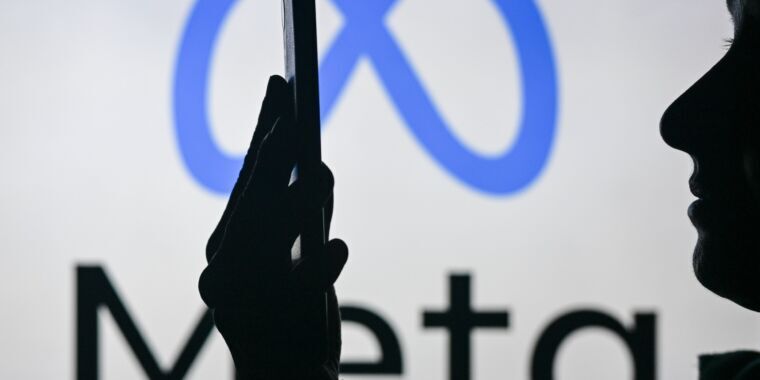Meta “programmed it to simply not answer questions,” but it did anyway.
Hallucinating is a fancy term for BEING WRONG.
Unreliable bullshit generator is still unreliable. Imagine that!
AI doesn’t know what’s wrong or correct. It hallucinates every answer. It’s up to the supervisor to determine whether it’s wrong or correct.
Mathematically verifying the correctness of these algorithms is a hard problem. It’s intentional and the trade-off for the incredible efficiency.
Besides, it can only “know” what it has been trained on. It shouldn’t be suprising that it cannot answer about the Trump shooting. Anyone who thinks otherwise simply doesn’t know how to use these models.
It is impossible to mathematically determine if something is correct. Literally impossible.
At best the most popular answer, even if it is narrowed down to reliable sources, is what it can spit out. Even that isn’t the same thing is consensus, because AI is not intelligent.
If the ‘supervisor’ has to determine if it is right and wrong, what is the point of AI as a source of knowledge?
It is impossible to mathematically determine if something is correct. Literally impossible.
No, you’re wrong. You can indeed prove the correctness of a neural network. You can also prove the correctness of many things. It’s the most integral part of mathematics and computer-science.
For example a very simple proof: with the conjecture that an even number is 2k of a number k, then you can prove that the addition of two even numbers is again an even number (and that prove is definite): 2a+2b=2(a+b), since a+b=k for some k.
Obviously, proving more complex mathematical problems like AI is more involved. But that’s why we have scientists that work on that.
At best the most popular answer, even if it is narrowed down to reliable sources, is what it can spit out. Even that isn’t the same thing is consensus, because AI is not intelligent.
That is correct. But it’s not a limitation. It’s by design. It’s the tradeoff for the efficiency of the models. It’s like lossy JPG compression. You accept some artifacts but in return you get much smaller images and much faster loading times.
But there are indeed "AI"s and neural networks that have been proven correct. This is mostly applied to safety critical applications like airplane collision avoidance systems or DAS. But a language model is not safety critical; so we take full advantage.
If the ‘supervisor’ has to determine if it is right and wrong, what is the point of AI as a source of knowledge?
You’re completely misunderstanding the whole thing. The only reason why it’s so incredibly good in many applications is because it’s bad in others. It’s intentionally designed that way. There are exact algorithms and there approximation algorithms. The latter tend to be much more efficient and usable in practice.
The only reason why it’s so incredibly good in many applications is because it’s bad in others. It’s intentionally designed that way.
lolwut
It’s designed in a ways that’ll make it inherently incorrect. Even on a physical basis (due to numeric issues). It’s not a problem of the algorithm because it has been designed that way. The problem is that you don’t know how to correctly use it.
I can’t explain it any differently without getting overly technical. You wouldn’t understand it anyways, judging by your comment “lolwut”. If you want to learn how LLMs work specifically, there are plenty of ressources on the internet.
It’s designed in a ways that’ll make it inherently incorrect. Even on a physical basis (due to numeric issues). It’s not a problem of the algorithm because it has been designed that way. The problem is that you don’t know how to correctly use it.
“It doesn’t make a good source of knowledge.”
“Yeah, but it is designed to be inherently wrong”
How does that make any sense when trying to use something for knowledge? Being inherently wrong is the opposite of helpful for knowledge.
AI is great at pattern recognition, but knowledge isn’t pattern recognition. Needing to know when it gives false information requires the “supervisor” to already have that knowledge. That makes the AI less useful than a simple reference because at least the reference can come from a trusted source.
If people stopped trying to jam AI into situations where being correct is important it wouldn’t be a problem. But excusing that because it is designed to be inherently wrong deserves another LOLWUT.
How does that make any sense when trying to use something for knowledge? Being inherently wrong is the opposite of helpful for knowledge.
It was never designed to reproduce knowledge. It was designed to do reasoning and natural language processing and generation. You’re using it wrong.
LULWUT
If you don’t know what you’re talking about and don’t have any capacity to learn something new, it’s sometimes best to stop talking. Especially when you’re starting to get rude to knowlegable people that try to explain it to you.
You can prove some things are correct, like math problems (assuming the axioms they are based on are also correct).
You can’t prove that things like events having happened are correct. That’s even a philosophical issue with human memory. We can’t prove anything in the past actually happened. We can hope that our memory of events is accurate and reliable and work from there, but it can’t actually be proven. In theory everything before could have just been implanted into our minds. This is incredibly unlikely (as well as not useful at best), but it can’t be ruled out.
If we could prove events in the past are true we wouldn’t have so many pseudo-historians making up crazy things about the pyramids, or whatever else. We can collect evidence and make inferences, but we can’t prove it because it is no longer happening. There’s a chance that we miss something or some information can’t be recovered.
LLMs are algorithms that use large amounts of data to identify correlations. You can tune them to give more unique answers or more consistent answers (and other conditions) but they aren’t intelligent. They are, at best, correlation finders. If you give it bad data (internet conversations) or incomplete data then it at best will (usually confidently) give back bad information. People who don’t understand how they work assume they’re actually intelligent and can do more than this. This is dangerous and should be dispelled quickly, or they believe any garbage it spits out, like the example from this post.
This sounds like an overly pedantic view of “prove”
It’s not pedantic. You can mathematically prove math.
You can’t mathematically/algorithmically prove an event happened or did not happen.
You can prove mathematical logic and you can (not 1-to-1) tie that to symbolic logic, but since it’s not 1-to-1, because of ambiguity of symbols, there will be much more complexity. I personally think that the future of various machine assistants lies there, and what LLM’s now do is going to be used in auxiliary roles for that.
No. It’s just pure math and logic. And LLMs are nothing more than billions of additions and multiplications. Literally. You can prove certain things on it just like you can prove theorems in mathematics. It’s an ongoing ressearch field.
It’s just pure math and logic. And LLMs are nothing more than billions of additions and multiplications.
Okay: using additions and multiplications prove the assassination attempt on Donald Trump happened
Well but this kind of correctness applies to everything. By thag logic, you can’t believe anything. I’m talking about an entirely different correctness. Like resistance against certain adversarial attacks. Of course, proving that the model is always correct, is as complicated as modelling the entire reality. That’s infeasible. But it’s also infeasible for every other software.
Uhm. Have you ever talked to a human being.
Human beings are not infallible either.
That’s like saying car crash is just a fancy word for accident, or cat is just a fancy term for animal.
Hallucination is a technical term for this type of AI, and it’s inherent to how it works at it’s core.
And now I’ll let you get back to your hating.
Hallucination is also wildly misleading. The AI does not believe something that isn’t real, it was incorrect in the words it guessed would be appropriate.
Kaplan noted that AI chatbots “are not always reliable when it comes to breaking news or returning information in real time,” because “the responses generated by large language models that power these chatbots are based on the data on which they were trained, which can at times understandably create some issues when AI is asked about rapidly developing real-time topics that occur after they were trained.”
If you’re expecting a glorified autocomplete to know about things it doesn’t have in its training data, you’re an idiot.
Yeah, the average person is the idiot here, for something they never asked for, and for something they see no value in. Companies threw billions of dollars at this emerging technology. Many things like Google Search have hallucinating, error-prone AI forced into the main product that is impossible to opt-out or use the (working) legacy version now…
Nobody is forcing you to use it.
I’m using it and I see great value in it. And if there are people that see value in a product then it’s worth the investment.
Yes, people are being forced to use it if they want to, for instance, search using Google or Bing.
As the parent comment suggested, or there’s no way to opt out, currently.
I’m glad you see value in it; I think the injection of LLM queries into search results I want to contain accurate results (and nothing more) a useless waste of power.
Injecting that into search result is a bad thing, I’m with you on that. Try DuckDuckGo. They use Bing but don’t insert all of that AI crap. The results are much more vanilla. It’s actually easier to find stuff because it’s not that cluttered.





